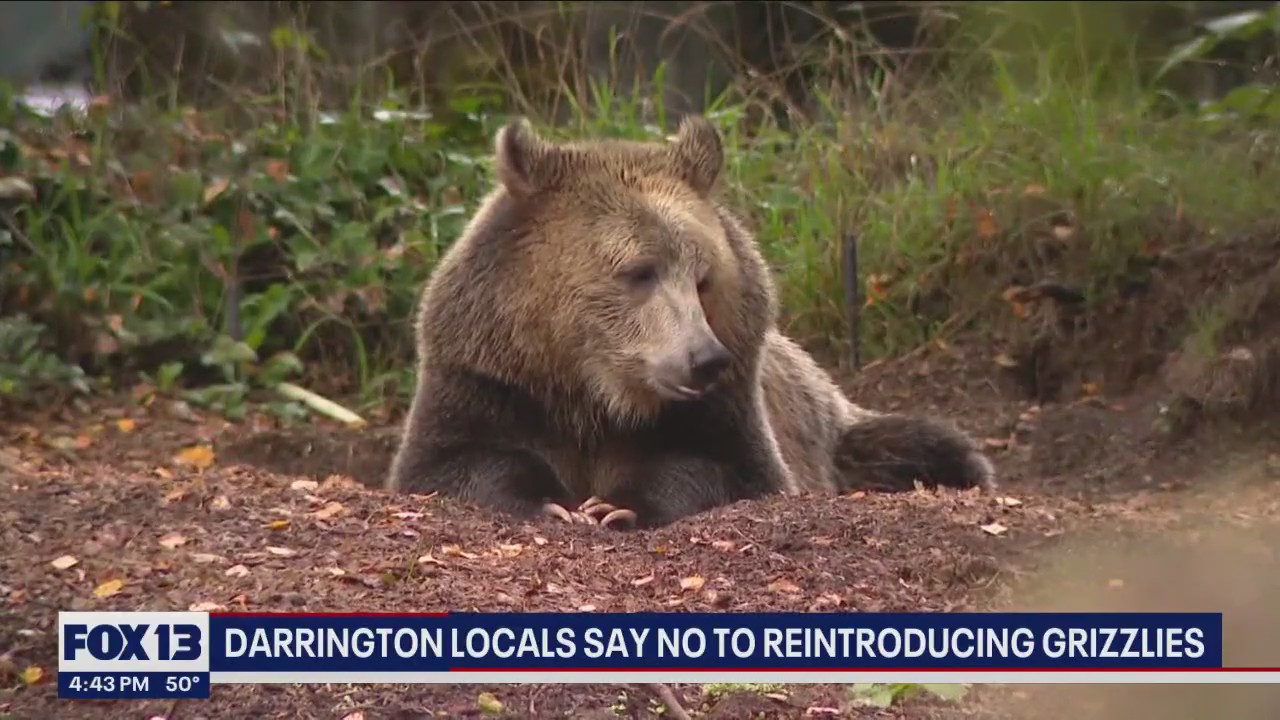Darrington locals say 'no' to reintroducing grizzlies to the wild

Darrington locals say 'no' to reintroducing grizzlies
The debate over reintroducing grizzly bears in Washington State is growing more divisive by the day.
SNOHOMISH COUNTY, Wash. - The debate over reintroducing grizzly bears in Washington State is growing more divisive by the day.
Residents of Darrington are overwhelming opposed to the plan created by several federal agencies.
Dissenting voices gathered at the Darrington High School Auditorium to relay concerns. More than a hundred attended, Kevin Ashe among them.
"I live right here, where the bears are eventually going to be," said Ashe. "The biggest fear is your kids or someone in your family gets mauled or, God forbid, killed by a grizzly."
Ashe is one of the locals leading the charge to keep the humpback predators at bay. Members of the community complain livestock and game like elk and deer could suffer, too. Darrington Mayor, Dan Rankin is also backing the movement.
"When we bring back the salmon, that’s the time that we can look at those other building blocks of that ecosystem that makes sense," said Mayor Rankin.
The plan drafted by the U.S. Department of the Interior, U.S. Fish and Wildlife Service and the National Park Service aims to restore the grizzly bear population to 200. Their goal is to increase biodiversity and increase the long-term survival of grizzly bears in a region the animals once roamed.
PREVIOUS COVERAGE: Plans to restore grizzly bears in Washington has people drawing a line in the sand
Wildlife biologist Jason Knight runs Alderleaf Wilderness College in Snohomish County. Knight acknowledged bringing back large carnivores into any ecosystem is a controversial move, but overall sees it as a net positive.
"There’s enough habitat up there in the North Cascades," said Knight. "I think it’s also going to draw a lot more people into the North Cascades, too, think about how many people go to Alaska specifically to see grizzly bears."
Knight pointed out grizzlies have a low reproduction rate. So it could take at least a century before the population in the area exceeds 100.
"It takes years before they can breed and reproduce and then when they have cubs, they perish," said Knight. "The survival rate of cubs is very low."
The public comment on this federal proposal ends Monday, Nov. 13.

